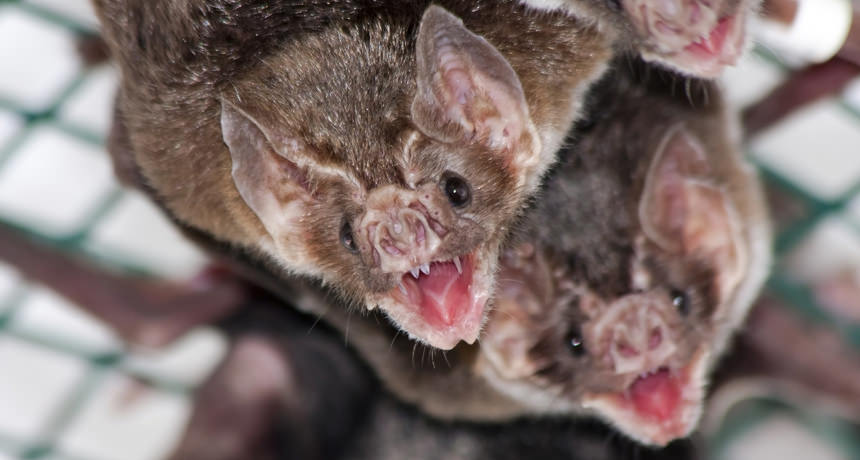U.S. News
Vampire bats marching toward US border, causing rabies fears
By Jake Beardslee · November 1, 2023
In brief…
- Vampire bats spreading north from Mexico, expected in southern US within 20 years
- Bats parasitically feed on cattle, cost Mexican ranchers millions in losses
- Rabies infections in livestock and bats raise concerns for human exposures
- Vaccines and prevention measures recommended as bats move into new areas

New research shows that large groups of small vampire bats, which feed on the blood of farm animals, are moving north and getting closer to the US-Mexico border. Scientists from Virginia Tech predict that these vampire bats will spread into the United States within 5 to 20 years. The bats have already been spotted as close as 30 miles south of Texas. The northward movement of the vampire bat populations poses a concerning threat for livestock farmers in the southern US, The Daily Mail reports.
New research sounds the alarm on vampire bats creeping northward towards the U.S. border, threatening American ranchers and public health.
Scientists from Virginia Tech report sizable colonies of the blood-sucking bats have been spotted just 30 miles south of Texas. Experts predict an “invasion” onto U.S. soil within 5-20 years as warming trends make America more hospitable.
The bats have long plagued livestock south of the border. Just two inches long, the bats bleed cows and horses, transmitting deadly rabies. According to a 2020 U.S. Department of Agriculture report, bat-related losses cost Mexican ranchers over $46 million annually.
While human rabies deaths are rare in the U.S., most originate from bat contact. As the bats spread, experts warn of potential public health impacts. American ranchers also brace for millions in potential livestock losses, as the bats move into Texas and beyond.
“It’s a difficult situation that we’d like to address as soon as possible, so vigilance is crucial,” said Gary Joiner of the Texas Farm Bureau to Wired. He noted, “This bat species causes a lot of concern in agriculture due to its ability to transmit diseases, injure livestock, and cause infections.”
Researchers suggest vaccines and prevention against the spreading vampire bats, but warn disrupting rabies in bats could have ecological consequences. For now, officials advise at-risk livestock producers to consider vaccinating animals. However, more research is needed to find solutions that protect health while minimizing environmental impact.